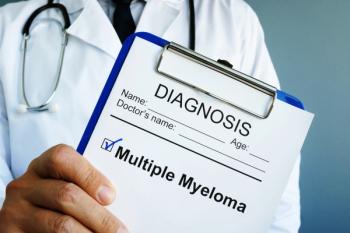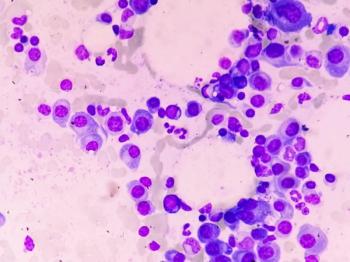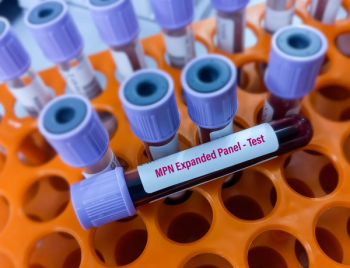
IMROZ study data show Isa-VRd may be a new standard of care.

IMROZ study data show Isa-VRd may be a new standard of care.

NADINA trial results support a new standard of care for these patients.

Data presented show significant advancements in treatment options.

The 2024 American Society. ofClinical Oncology (ASCO) Annual Meeting in Chicago, Illinois, highlighted significant advancements across various oncology disciplines.

Brentuximab vedotin in combination with lenalidomide and rituximab had a favorable safety profile for patients with relapsed/refractory diffuse large B-cell lymphoma.

Individuals with very low- to intermediate-risk myelodysplastic syndromes treated with luspatercept (Reblozyl; Bristol Myers Squibb) achieved improvements in hemoglobulin levels.

Lisocabtagene maraleucel is being investigated for mantle cell lymphoma, relapsed or refractory (R/R) large B-cell lymphoma, and R/R follicular lymphoma.

Compared with pembrolizumab alone, the combination treatment showed stronger recurrence-free survival and distant metastasis-free survival in patients with resected high-risk stage III or IV melanoma.

Data from the PERSEUS trial supports use of daratumumab in combination with bortezomib, lenalidomide, and dexamethasone followed by daratumumab and lenalidomide maintenance as a new standard of care for patients with newly diagnosed multiple myeloma.

Results from the initial safety run-in of MajesTEC-7 indicate that the combination of teclistamab, daratumumab, and lenalidomide in newly diagnosed multiple myeloma (NDMM) shows a manageable safety profile with early signs of efficacy.

The study showed that belantamab mafodotin plus pomalidomide and dexamethasone (BPd) significantly improved progression-free survival compared to pomalidomide plus bortezomib and dexamethasone (PVd).

The PALOMA-3 trial showed subcutaneous amivantamab was better than IV for lung cancer patients.

Data presented at ASCO 2024 show fam-trastuzumab deruxtecan-nxki (T-DXd) delayed cancer growth in patients with hormone receptor-positive (HR+), HER2-low or -ultralow disease that progressed following endocrine therapy (ET).

The phase 3 LAURA trial data presented at ASCO 2024 showed osimertinib (Tagrisso; AstraZeneca) reduced risk of disease progression or death in patients with stage 3 EGFR-mutated (EGFRm) non–small cell lung cancer (NSCLC) by 84%.

Results from the trial provide evidence bolstering ASCO’s clinical practice guideline supporting the integration of early palliative care into standard oncology practice.

Matthew A. Gubens, MD, MS, FASCO, highlights the importance of identifying genetic targets in metastatic non–small cell lung cancer (NSCLC), emphasizing the latest updates and strategies.

The addition of ribociclib (Kisqali; Novartis) to endocrine therapy demonstrated a 28% risk reduction in invasive disease-free survival.

Quadruple therapies including immunotherapy agents show promise in treating patients with multiple myeloma.

Gender disparities among oncology health care professionals have significant consequences for both the physicians and the patients they treat.

Pharmacists also have the resources to help advocate for better care for patients.

Early safety studies of NK-cell infusion have demonstrated the potential of NK-cell infusion, showing it may be the next revolution in cancer treatment.

There are currently no effective treatments for CIPN prevention.

These data support a paradigm shift in the treatment of locally advanced rectal cancer.

With approximately 2 years of additional follow-up, lenvatinib plus pembrolizumab maintained robust effectiveness for nearly every patient.

The phase 3 S1826 trial is the largest Hodgkin lymphoma study in NCTN history.

Updated phase 3 trial data provide practice-changing findings.

These study results may inform clinical practice strategies this year and beyond.

Approximately 50% of patients with refractory or relapsed disease achieved complete response following treatment with the Janus kinase 1 (JAK1) inhibitor.

Trial results demonstrated that 58.5% of individuals receiving luspatercept-aamt (Reblozyl; Bristol Myers Squibb) achieved the primary endpoint of red blood cell transfusion independence of at least 12 weeks.

Earlier in June, Govindan led an educational session about genomic testing at the 2023 American Society of Clinical Oncology (ASCO) Annual Meeting in Chicago, Illinois.